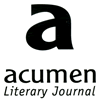Reviews
A Pastoral Symphony
Rewards of Wonder by Ivor Gurney, edited by George Walter. Fyfield Books/Carcanet, with Midnag. 166pp.; £9.95.
Rewards of Wonder is the fourth of the books which Gurney put together in his lifetime, and which survives (several others seem lost). It now has its first publication, seventy years or so after the event. Historically it follows Eighty Poems Or So, which Fyfield Books have also issued recently. It would be difficult, however, to imagine two more different books. Eighty Poems Or So is an exuberantly lyrical book. It was written in the aftermath of Gurney’s release from the Army, and the odd shadow notwithstanding, it is full of a zany joy in life in general and town and countryscapes especially, while the War is chiefly noticeable by its absence. Rewards of Wonder is a much more ambitious project. Although composed of short poems, which are each complete in themselves, the book is like a rather radical film script. A lot (indeed a majority) of shots only occur once, but some are repeated with slight variations on a fair number of occasions. Is it coincidence that Gurney worked as an accompanist to silent films about this time? Equally he was trained as a Classical composer when Vaughan Williams was beginning to write symphonies, and the method of this book reminds me of that composer’s Pastoral Symphony, which was begun in the trenches and has much in common with Rewards of Wonder in its slow drift over the immemorial English landscapes, that to many of the more imaginative Englishmen of that War represented what they fought for. Be that as it may, in Rewards of Wonder we drift continually between the trenches and scenes repeated over and over with slight variations, and a constant flickering film of the Gloucestershire landscape and Gurney’s (often overcast) walks in it, and musings on its history. There is also a passionate longing for a return to the more various life of the Elizabethans, even if that means something of that period’s bloodshed and uncertainty. The trenches, Gurney seems to say, were not pleasant, but men were more alive there than at home. If only there was something, more like the Elizabethans, not as bad as the trenches, but as vital, and his old comrades did not have to be unemployed or doing ridiculous little jobs. These feelings of Gurney’s are not comfortable, but they deserve respect. His
alleged madness seems, indeed, much closer to a genuine alienation from a society which had, in Gurney’s eyes, rejected him and his comrades after all their service and left them with very little. The loneliness must have been intense! And most of us do odd things when we are lonely.
Page(s) 114-115
magazine list
- Features

- zines

- 10th Muse
- 14
- Acumen
- Agenda
- Ambit
- Angel Exhaust
- ARTEMISpoetry

- Atlas
- Blithe Spirit
- Borderlines
- Brando's hat
- Brittle Star

- Candelabrum
- Cannon's Mouth, The
- Chroma
- Coffee House, The
- Dream Catcher
- Equinox
- Erbacce
- Fabric
- Fire
- Floating Bear, The
- French Literary Review, The
- Frogmore Papers, The
- Global Tapestry
- Grosseteste Review
- Homeless Diamonds
- Interpreter's House, The
- Iota
- Journal, The
- Lamport Court
- London Magazine, The
- Magma
- Matchbox
- Matter
- Modern Poetry in Translation
- Monkey Kettle
- Moodswing
- Neon Highway
- New Welsh Review
- North, The
- Oasis
- Obsessed with pipework
- Orbis
- Oxford Poetry
- Painted, spoken

- Paper, The
- Pen Pusher Magazine

- Poetry Cornwall
- Poetry London
- Poetry London (1951)
- Poetry Nation
- Poetry Review, The
- Poetry Salzburg Review
- Poetry Scotland
- Poetry Wales
- Private Tutor
- Purple Patch
- Quarto
- Rain Dog
- Reach Poetry
- Review, The
- Rialto, The
- Second Aeon
- Seventh Quarry, The
- Shearsman
- Smiths Knoll
- Smoke
- South
- Staple
- Strange Faeces
- Tabla Book of New Verse, The
- Thumbscrew
- Tolling Elves
- Ugly Tree, The
- Weyfarers
- Wolf, The

- Yellow Crane, The
